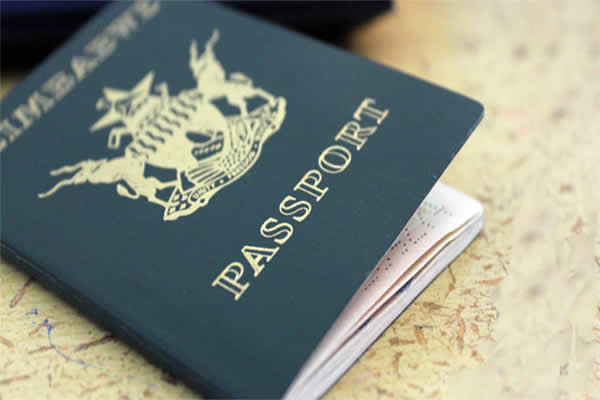Disposal or Acquisition of Immovable Property
Disposal or Acquisition of Immovable Property What you need to know Consult your lawyer or property consultant before making a decision to sell or buy property. Does the property have Title Deeds? If so, in whose name(s)? Positively identify all the parties involved. Before title changes hands, ensure that the purchase price is securely kept in the lawyer’s trust account. Both Seller and Purchaser must attend on Zimra for assessment of capital gains tax. (NB parties must attend on Zimra irrespective of whether or not the Seller is exempted from paying capital gains) The decision whether or not capital gains tax is payable comes from Zimra. The conveyancer/lawyer shall halp obtain a rates clearance from the local authority at the expense of both Seller and Purchaser. Duty and registration of the new title deeds shall be collected and remitted to the Registrar of Deeds by the conveyancer at the time of lodging new title deeds. To be on the safe side, involve your lawyer through and through Contact us any time with any questions and set up an appointment with our lawyers for full legal advice. Call us on 04 752870
Read moreRegistering A Deceased Estate
Registering A Deceased Estate Steps to be taken when registering a deceased estate The death must be registered at the nearest Births and Deaths Registry and a death certificate must be obtained. The surviving spouse, or if there is no surviving spouse then a family member has to take steps to register the deceased estate. The estate should be registered at the Master of High Court’s Office or at a Magistrates’ Court depending on whether civil law or customary law applied to the deceased person. The estate has to be reported within 14 days of the death of the deceased. Upon registering, the responsible person will complete a death notice form, as well as an inventory form listing the deceased’s assets. An edict meeting will then be held, attended by at least four close relatives of the deceased, where a person called an executor will be appointed to administer the estate. Where the deceased left a will, their wishes will be respected and an executor nominated in the will shall be appointed. Where the deceased left no will, the executor will be appointed at an edict meeting. If the office of Executor is contested, the Master of High Court will appoint a neutral executor. The executor will be issued with Letters of Administration. These give the executor authority to wind up the estate. If the surviving spouse experiences problems such as property grabbing, they should immediately report the matter to the nearest police station, as the law does not permit anybody to remove any of the deceased person’s property before the estate has been wound up. These steps are by no means complete legal advice Contact us any time with any questions and set up an appointment with our lawyers for full legal advice. Call us on 04 752870
Read moreLabour Rights
Labour Rights What you need to know You have the right: To have a contract of employment and to a fair renumeration. To receive your salary as and when it becomes due. To receive all your contractual benefits and the right to annual leave. To fair and equal treatment given to other employees. Not to be subjected to sexual or any form of harassment either by the employer or fellow employees. To join a trade union of your own choice and participate in its activities. To collective bargaining and the right to strike. Not to be unfairly dismissed. Not to be dismissed without hearing. To be heard and make presentations before being dsmissed. To a hearing before an impartial and not biased disciplinary committee. To the right to receive your terminal benefits. In terms of retrenchment, the right to receive your retrenchment package in terms of law. If you feel your rights have been infrindged, contact your lawyer Contact us any time with any questions and set up an appointment with our lawyers for full legal advice. Call us on 04 752870
Read moreKnow Your Rights
Know Your Rights The arrested or detained person must enjoy the following rights You have the right: To be informed immediately of the grounds of arrest. To be released immediately if the investigations remove any suspicion that an offence had been committed. To be released on the police bail if the offence is a bailable offence. To be permitted to inform a friend or relative of arrest, and the intended place of detection. To access a telephone upon arrival at the Police Station. To meet and consult with a lawyer of his/her own choice. Not to be tortured, assaulted, humiliated or treated in an inhumane or degrading manner. Not to be interrogated in the abscence of your lawyer. To be held in a hygenic and humane place of detention. To be released unless taken to court within 48 hours of arrest. To inform the Court of any assault or torture by the police, or by other persons while accused was in custody of the police at his/her first appearance in court. If you feel your rights have been infrindged, contact your lawyer Contact us any time with any questions and set up an appointment with our lawyers for full legal advice. Call us on 04 752870
Read moreWill Writing
Will Writing What you need to know Living persons are encouraged to write their wills outlining how their property should be shared in the event of their deaths. Our laws respect the wishes of the deceased and will give effect to ther covenants. A person over the age of 16 and who is not legally incapacitated in any way can write a will outlining how his or her property must be shared upon death. A will can be written in any language that a person chooses. A will can be written at any time. You do not have to wait until you are sick. A will can be changed or replaced at any time. It must be in writing, signed at the end of the will and on every age, as close to the end of the writing as poosible by the writer and two witnesses in the presence of the writer. All three must be present at the time of signing. Where the writer of the will is unable to sign, he or she may put a mark that can be certified by specified persons. The witnesses must be at least 16 years of age and competent to give evidence in a court of law. In addition, the witnesses must be capable of seeing the testator sign in order to authenticate that indeed the testator freely and knowingly signed the will. A person who will inherit something in terms of the will should not sign the will as a witness, as they may be disqualified from benefitting. Generally speaking a will made prior to a marriage will be invalid. A will should contain among other things, the name of the person making the will and his or her identity particulars; the name/s of the people who will benefit under the will, their identity details and extent of benefit; the name of the person to administer the estate; and where appropriate, provision for the guardianship of minor children. A will is a confidential document. For that reason it must be kept by the Master of the High Court, your banker, your pastor or priest or a trusted friend. When the person who has made a will dies, any person in possession of the will must register the will with the Master of High Court in Harare or Bulawayo or the Magistrate’s Court for the district in which the deceased died or lived. These points are by no means complete legal advice Contact us any time with any questions and set up an appointment with our lawyers for full legal advice. Call us on 04 752870
Read moreMaintenance
Maintenance What you need to know Maintenance is money paid by a responsible person at periodic intervals or at once to a dependant for the dependant’s up keeping and other living needs. Dependant means a person who by law is supposed to be maintained by the responsible person, who could be minor child (Child below 18 years); a major child (above 18 years) who is not capable of looking after himself because of some mental or physical disability; a spouse, a divorced spouse; stepchild or adopted child who is a minor or a major who has to be maintained at law. Responsible person means a person who at law has the duty to maintain another person. Maintenance is claimed in the Magistrate’s Court (Civil Division) or in the High Court (Civil Division). The claim for maintenance is made either by way of a court application or through summons. The application for maintenance or the summons must state the name and address of the person seeking maintenance, how the person is a dependant, and the person’s maintenance needs. The matter will then be set down for hearing in the the appropriate court where a maintenance order will be granted. A person may approach the appropriate court to have an existing maintenance order varied. An existing order will be varied on application to the court. The person seeking a variation must state on affidavit why he/she requires a maintenance order to varied. Reasons for seeking variation may include increase in the income of the responsible person, increase in the needs of the dependent or loss of value in money due to inflation. A maintenance order can be discharged by the court at any time for any good cause shown, e.g that the responsible person is no longer capable of contributing maintenance, the child being maintained is now self-supporting, the person being maintained has died etc. To be on the safe side, involve your lawyer through and through Contact us any time with any questions and set up an appointment with our lawyers for full legal advice. Call us on 04 752870
Read moreDivorce
Divorce What you need to know The court does not force parties to divorce. The court does not force any party who wishes to divorce to remain married. If your marriage is registered in terms of customary law divorce is granted at the Magistrate’s Court. If you are married in terms of an unregistered customary law union, how the property of the union can be shared is determined at the Magistrate’s Court. If you are married in terms of the general law (Marriage Act Chapter 5:11) divorce is granted at the High Court. If you have children, the divorce court will deal with issues of custody, access and maintenance of the children. All issues to do with the children are determined on the basis of the best interest of the children and not the parties to the marriage. Maintenance is determined on the basis of the means of the parties. If you have property (Houses, cars, furniture, etc), the court will equitably share property between the spouses. Distribution of assets of the spouses is based, amoung other things on the length of the marriage and the parties’ direct and indirect contribution to the acquisition of the property. A person who wishes to divorce must give valid reasons for the breakdown of the marriage such as adultery, cruelty, violence, desertion, and denial of conjugal rights. Divorce can be granted by the consent or agreement of the parties or after contestation at trial. To learn more, seek out complete legal advice Contact us any time with any questions and set up an appointment with our lawyers for full legal advice. Call us on 04 752870
Read moreLegal and Parliamentary Affairs
Vestibulum quam nisi, pretium a nibh sit amet, consectetur hendrerit mi. Aenean imperdiet lacus sit amet elit porta, et malesuada erat bibendum. lacus sit amet elit porta.. Lorem ipsum dolor sit amet, consectetur adipiscing elit. Phasellus tempor lacinia diam quis imperdiet. Proin vitae iaculis nisl. Cras eleifend quam lectus, sed bibendum libero convallis at. Nulla sagittis convallis neque at scelerisque. Pellentesque placerat bibendum magna, semper accumsan sem congue nec
Read moreMMM Legal Practitioners announces 6 new partners
Vestibulum quam nisi, pretium a nibh sit amet, consectetur hendrerit mi. Aenean imperdiet lacus sit amet elit porta, et malesuada erat bibendum. Cras sed nunc massa. Quisque tempor dolor sit amet tellus malesuada, malesuada iaculis eros dignissim imperdiet lacus sit amet elit porta..
Read more









